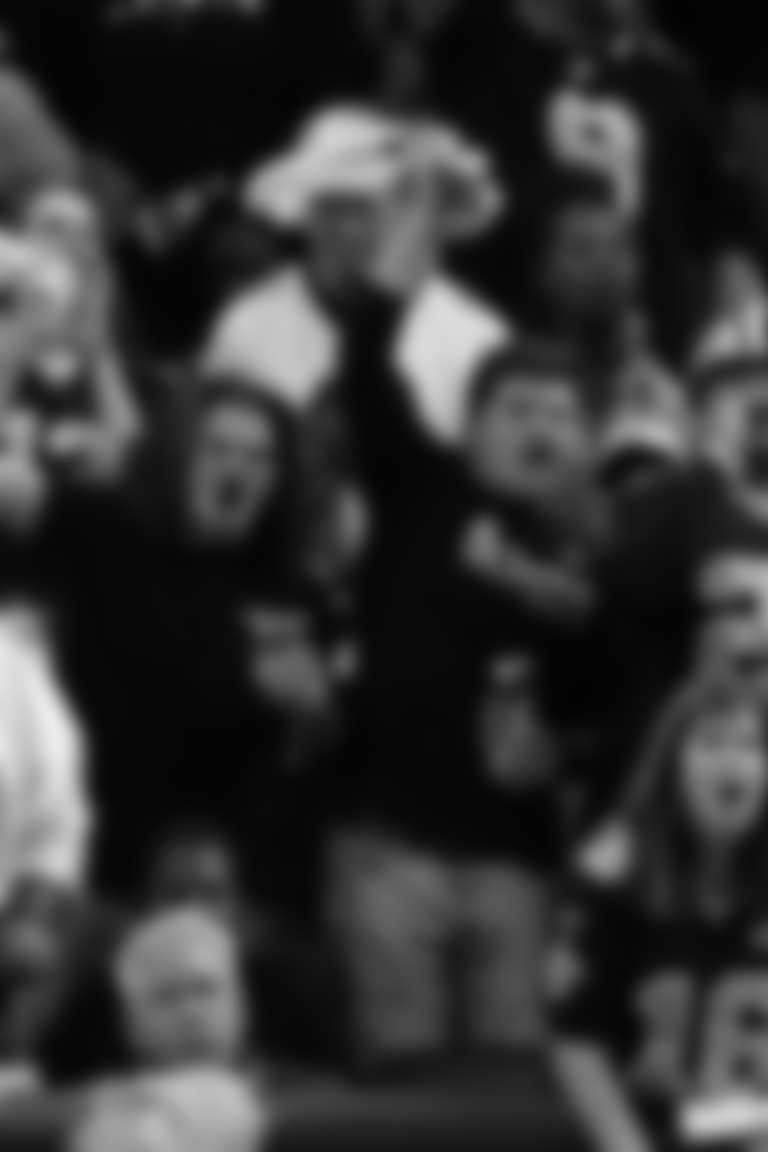<span> <span style="">Opening Statement:</span>
"With today's practice, Malcolm Jenkins, hamstring, did not practice. He's questionable. Jeremy Shockey, knee, did not practice, he's questionable. Robert Meacham, ankle, he's limited and probable. Darren Sharper, knee, he's probable. Jonathan Goodwin, knee, is probable, and Bobby McCray, back, full and probable."
When you came here, you knew the history of the franchise. What made you feel you could get this team to this point where you're in the second NFC Championship game in four years?
"Well, it starts with people. And there were two visits really. The first in San Antonio when I came down from Dallas. I flew down there to spend some time with Mickey Loomis. I had just returned from the Packer interview. And then I came here for really what was the second interview in Metairie and once again spent a lot of time with Mickey.
"And I think more than anything, your instincts in regards to people and in regards to the vision that Mickey had, and ownership had, here and their commitment. There were some reservations certainly about where everything was at in regards to Katrina and this team just getting back to this region. But I felt real good about where Mickey was at and what he was looking for and where ownership was. Mr. Benson and what they were looking for. So I think it started with the people and trusting your gut."
When you took that job, I guess you looked at things with jobs as pluses and minuses. And Katrina might be, correct me if I'm wrong, some of it is off the board and unique. When you're considering the job and everything, how did you look at the on off the field stuff you might have to deal with?
"The concern with Katrina was just bringing coaches, bringing a coaching staff together and bringing free agents here and players here with the uncertainty of the quality of life and everything that had taken place. There are a number of players, a handful of players and coaches from that original team and staff in '06, and they can remember – certainly we've come a long way now four years later. But that was a concern just in regards to bringing people here, good people that you need to have success."
So there were lots of promises that had to be made? You know, 'We're willing to spend whatever it takes, willing to chase whatever you want?'
"I don't know that there was any list of promises. I think it was more of just a philosophy of winning football. I got some real good advice as I walked out and as I left Dallas after having a great three years there.
"But from Bill (Parcells), you know, it was, 'Hey, real quickly, you've got to figure on out what's kept that organization from winning and make those changes. Otherwise they'll be having another press conference three years from that time, so'...So I think it was really more of a feeling for Mickey and really a trust level. And I said this yesterday. He's someone that has really had a clear vision for this whole program and been extremely supportive to me and the coaches and the players in regards to acquiring talent. And I think that that has paid off."
What is your relationship with Mr. Benson like? And can you just describe what his best traits are?
"He's been very consistent. We have a great relationship. He empowers the football people, Mickey Loomis and others, to do their jobs. And I'll bet daily he asks what can I do to help? He has during my four years probably asked that question a hundred times. I was fortunate enough a year ago to sign another contract extension. You know, when we've had players that have played well, you know, he's provided us the resources to secure them and keep them here. We've also gone out and gotten players. He's been very supportive."
What are some of the keys to handling the kind of pressure that the Vikings defensive front will bring?
"I think it's important that you look at your protections and you make sure you have a variety. They're very talented in the front. When you look at the two tackles inside and the ends, they can, with the four man rush, they can wreak havoc on your passing game and really do a great job in your running game.
"So I think your early downs are important. When you look at their statistics and study their third down reel, they've got so many opponents in 3rd and 9, 3rd and 10, or 3rd and 12. Then that becomes problematic. So having success on the early downs is important."
How does Drew Brees handle the pass rush so well?
"He decides very quickly where he wants to go. He's someone that I think has good vision. You know, his sack numbers in the last four years have been amazing. He's someone that has a good clock in his head."
You talked a lot about how you see a lot of the same things and can get a feel for what play's coming next. Do you have any recent specific examples of where you guys were on on the same page?
"That would probably be a better question for Drew since, you know, he's the one that's getting the play and sometimes anticipating it. I think it varies each week. You go through so many of these scenarios during the week. You go through the third down, the red zone, the tight red, the two point play, the short yardage call. Then by the end of the week you prioritize those plays in regards to which ones that you plan on running first and wanting to use first.
"So it's no different than reviewing four or five days in a row with your students what's going to be on the test and really better preparing them to score well. It's the same thought as teaching."
What is different about it? I'm sure all play callers and their quarterbacks try to have a similar relationship?
"Well, he's a great student. He learns quickly. He processes information quickly. He's extremely, extremely thorough in his preparation. I think he's got good foot speed and great accuracy. But when it comes to the game plan, he immerses himself in it. And I think everything then slows down a little on game day because he's really worked that hard at it during the week."
Can you think of a specific example where you two might have disagreed about what to do next?
"I'm always trying to pay close attention to what he's thinking and what he's saying. You know, in Miami we were thinking of a field goal and he convinced me during that brief timeout that he could score on a quarterback sneak. So I think that it's smart for all of us to pay close attention to what the players are seeing, especially someone like him and how the game's unfolding. So any time there is a clock stoppage or any time there is maybe a decision as to what we're thinking, there is always open dialogue as to his confidence level in a play."
Robert Meachem is reliant on his speed and his ability to break away from whoever is covering him. When he has an ankle injury like this, do you take the position he plays into consideration?
"I think he's close to being 100% right now. In other words, I think the injury, fortunately, for us was not as significant as maybe some ankles. It was not a high ankle sprain. He ran out there well today. I was encouraged. So when you look at Friday, we've still got two more days before a Sunday p.m. game. I think he's running well. So I'm not as concerned. I would be if it was a more serious injury."
When you go into a game, do you say sometimes think you're going to maybe have to keep an tight end in more to block?
"We've done what you just said all year. In other words, we can't ignore the (John) Abrahams and the (Julius) Peppers of the world and the Jared Allens of the world and Trent Cole, week two or week three in Philadelphia. I think there are a lot of elite ends that can really disrupt your plan. So, we have to pay close attention to each play and what the design is in regards to not only just the ends but the tackles and our protection. So that's something we've consistently done. That's not anything new."
In your previous coaching stops, you've been in outdoor stadiums. What is it about the Superdome that gives you such a home field advantage?
"It's simple. It's just noise and communication. There are two things that take place with crowd noise. The snap count becomes more problematic for the offense. The further you are away from the ball in the offensive line position, the tackles, for instance, are further away from hearing. Most teams now work off a silent snap count.
"But it would be the equivalent of just a half second when you're on the road as opposed to at home. Then the communication that takes place offensively in the huddle. Those are challenges that force stress. They're also challenges defensively for the crowd noise in regards to the communication that takes place with the motion or a defensive call. That's something we try to spend a lot of time on."
When you've gone on the road, have you ever considered ear plugs for are your players at all?
"We've never used ear plugs. We just work a lot with the noise. It used to be 15 years ago you had the officials warning the crowd. I think teams have gotten a lot more proficient at handling crowd noise with the snap count, and the silent snap count. Teams have gotten better. Some teams choose to use that even at home, because they've become efficient with it. So I think that's happened over time."
Was the Dallas game you guys played this year in any way particularly helpful in helping you plan for the pressure of the Vikings?
"It's different. It's a different front. You've got a skill set with guys like (DeMarcus) Ware and their defensive linemen. There would be some similarities in regards to the talent level. But it is a different front."
When you interviewed in San Antonio, at that time was there any question as to where the team would be permanently?
"No. I think just the question would be the region, the city. Was the team going to be able to play in the Superdome the next season? Those were some of the questions."
Going back to when you said what you have to succeed or maybe having another press conference three years later. How much especially for you being an offensive minded guy, was finding a quarterback, period, a serviceable quarterback, much less one of the best in the league dictate how successful you're going to be?
"I think it's critical. I think when you look at the four teams remaining, New York's getting good play from their young quarterback. When you look at obviously the Colts and Peyton Manning, you look at the Vikings and Brett Favre. Go back to just the six NFC teams. I believe the six NFC teams all had Pro Bowl quarterbacks, Kurt Warner, Brett Favre, Tony Romo, Drew Brees. Who am I missing? Green Bay, (Aaron) Rodgers, Pro Bowl player. The teams that are winning are getting good play at that position. They handle the ball 65, 70 snaps a game. They can fly you safely to your destination or take you right into a mountain if you're not careful. So I think you've got to have good quarterback play."
You guys have been working defensively with crowd noise?
"Every week we do."
In regards to giving credit to Jahri Evans, do you think it's given the rest of the league a little time to catch up?
"I think it's pretty common. I've said this before. The one thing about this league is the tapes watched enough by the GM's, the players, and the people who know. They see a guy like him who is producing and playing well. It may be a year later than he deserves to go to the Pro Bowl. Generally a lot of times a player will get that on the back end. He'll play in that game a year longer than he should. He's really doing a great job. He's physical. He's smart. He works at it. He's been a key part of what we're doing offensively."
Is it sometimes difficult for players like him to be known coming out of small schools?
"I think anymore, the schools are scouted so well. It may have affected why he was drafted on the second day as opposed to the first day. But you do look at level of competition, and that factors in in the evaluation process. But he's transitioned very well."
When you talk about quality of life issues and getting situated here, were there people that you talked to that said, look, I'd love to but I can't?
"Sure, you bet. No question."
How hard was that to overcome?
"As you're trying to bring a staff together, just in hiring a coaching staff, if they have options at that time, you've got to really look closely at it. Number one if you're coming in as a new coach, you're generally coming in because there hasn't been success. And with everything else that had gone on, if it was an assistant coach that we were trying to hire that had other options, you know, that was a challenge for us."
Bill said to you that you had to recognize what kept that team from winning. What were those things in your viewpoint?
"Well, there were a number of things. I think first finding the quarterback was important. Creating an environment here that was conducive to winning. I was fortunate enough to be at some real good places to see that winning culture. I was lucky enough to work with the Dallas Cowboys, to work with the New York Giants and prior to that, the Philadelphia Eagles. Those are franchises that have had and shared a lot of success and gone to a Super Bowl in New York in 2000, the playoffs again in New York, the playoffs in Dallas.
"I was fortunate enough as an assistant coach to be a part of some winning programs. I think that helps you maybe have a vision for what you're looking to do with your program and creating that sense of urgency and creating that accountability not just with the team but throughout the organization."
You talked about the concerns that some of the coaches had in wanting to come and difficulty in getting free agents. What helped you personally get past that and be able to accept it for what it was in '06? And did the guys who did decide to come here maybe had a way of binding everybody together?
"Well, I certainly think that that first year our training camp we moved to Jackson, Mississippi. It was a pretty tough camp. The handful of players and coaches that are with us now that went through that can remember our tough practices. When you build something, it takes a lot of hard work. We went through that preseason. There is some uncertainty as to how successful you'll be. And you go through some peaks and valleys. I think it's important that you handle those with the correct temperament. You really roll your sleeves up, and a lot of people did that. We were able to have success in that first year. I think that certainly helped us gain credibility. We've tried to build on that each year."
Can you give a specific example of something that was particularly difficult to deal with that in another situation might not have been?
"Early on we were all staying right here at the hotel which is pretty common when you hire a staff. Families haven't gotten here yet. It probably was late winter, early spring. My family was in town and I needed to get an antibiotic for my daughter and waited in line two hours at a Walgreen's. They had half a prescription of amoxicillin. In other words it was different. It was hard to explain if you weren't here.
"There were a lot of people that left. I can recall the first trip as a family driving here in June, there was a lot of traffic going the other direction, not much going in."
The Vikings are essentially the same team that was there before other than the quarterback. Has that surprised you as a head coach to see what one person can really do?
"To be able to see the impact one player has is not surprising. Yet what he does on a weekly basis has been really amazing. To see what he's been able to accomplish at this point in his career I think has been unprecedented.
"You go back to Jack Nicklaus at the Masters in the '80s. Try to think of other scenarios that are similar. I can't think of many to see what he's accomplishing in this sport. A sport where there are a lot of demands physically as well as mentally on your body. He's had an amazing year."
A lot of your fans say they can't sleep this week. The anticipation is so high, you're not productive at work. What is the week like for you and the excitement? Is it all business or is there more excitement for yourself?
"No it's business. We get into routines. We're here at dark and get home at dark. We're a little sheltered at this moment to the game planning. Our players are probably the same way are into a routine. So these weeks all run together. Certainly you're excited because you know what's at stake. But we are into a good routine of game planning and practicing. All of us get accustomed to the schedule, and I think that's important."
In '06 when you guys went to the Chicago championship game and you had 500 people outside your hotel when you showed up? And was it a microcosm of what it's going to be like this weekend? That kind of excitement?
"I think the fan base here has been fantastic. Hopefully they're not all hoarse like you are. Hopefully they'll create enough noise for us Sunday. The bond they have with this team is significant. I think we see that all the time."
After games, I've seen you on the field throwing football with kids and stuff. How did that start? Is that just something you enjoy doing with your special time with them?
"Yeah, we try to after each game go down on the field, win lose or draw. For your 9 year old son, they look forward to that more than the game itself. It's just funny how sometimes you're always trying to maybe make up lost time that you have as a parent. So that has kind of been a constant, regardless how we finish. We're going to have a little touch game out there.
"It's grown now where you get 15 or 20 kids are out there planning on running around out on the field, and they enjoy that. It's a chance to really spend some quality time. Even if it's a half an hour, it's an important half an hour.
"They're not as concerned with this injury list, for instance, or Jeremy Shockey's knee. They're more concerned with some other things and understandably so."
Can you still make the deep throw?
"I can still make the deep throw."



















